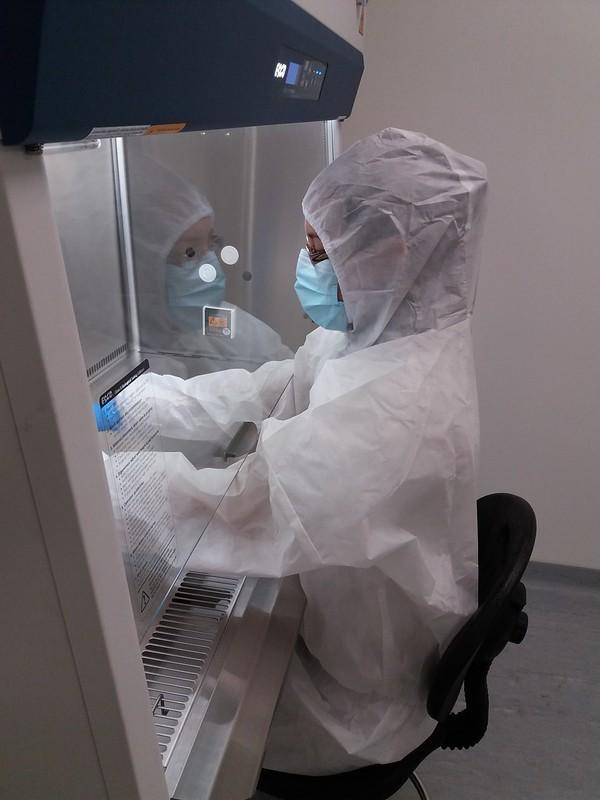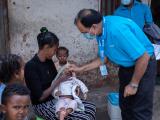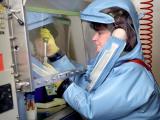Though progress has been made against polio, the risk of international spread of circulating vaccine-derived poliovirus type 2 (cVDPV2) remains high, and the situation still warrants a public health emergency of international concern (PHEIC), the World Health Organization (WHO) said today.
The announcement follows a recommendation from the WHO's polio emergency committee, which met on Jan 25 to discuss the latest developments. The group also noted a wild poliovirus type 3 (WPV3) containment breach at a vaccine manufacturer in the Netherlands, which Dutch researchers detailed today in the latest issue of Eurosurveillance.
Cases down in Afghanistan, Pakistan
The WHO first declared a PHEIC for polio in May 2014 owing to the international spread of wild poliovirus type 1 (WPV1), and its emergency committee—which typically meets every 3 months—has now met 34 times.
In its statement, the emergency committee noted that WPV1 cases in Afghanistan and Pakistan have dropped considerably, but detection of WPV1 in the environment continue, which suggests continuing spread. The committee said only three WPV1 genetic clusters remain, which are in Afghanistan, Africa, and Pakistan, and that genetic diversity of the virus has reduced.
Though cVDPV2 cases are declining, the risk of international spread remains high due to transmission in Africa, detections in the Americas, Europe, and Israel, and a recent detection in Indonesia. The group also raised concerns about cVDPV1, the vaccine-derived type 1 strain, in Africa, especially against the backdrop of WPV1 cases in Mozambique and population immunity gaps.
Surveillance crucial for identifying lab breaches
In the Eurosurveillance report, Dutch researchers described a WPV3 detection in November 2022 as part of surveillance surrounding a polio lab in Bilthoven. One sewage sample was positive for infectious virus, which was genetically similar to vaccine stocks used at the facility.
In addition, the study authors found slight mutation differences that hinted at human shedding. The investigators, using national and international protocols, conducted serologic testing and found that one employee likely had recently been infected. The fully vaccinated, asymptomatic employee's stool samples were positive for WPV3.
The employee agreed to voluntarily isolate in an area with high vaccine coverage on Dec 8, under supervision by local health officials. Virus shedding continued for 33 days, and the employee left isolation on Jan 11. No signs of ongoing transmission were found.
The authors wrote that the case shows that containment breaches, including those that lead to infection, can go unnoticed and that environmental surveillance is crucial for identifying them.



















